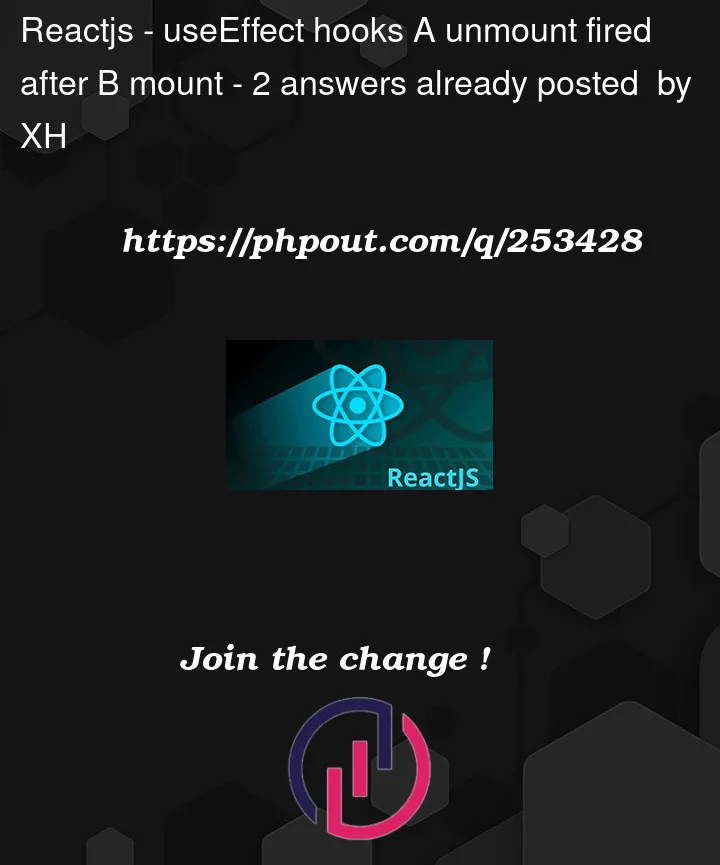I am using a custom IsEditedContext. There are 3 status, initial, edited, and unedited. shouldRefresh is depending on status. I am using react-router-dom to navigate across the page with <Link> component.
The expected result of the context is:
- I navigate to
Firstpage,statusis initial,shouldRefreshis true. - API in
Firstpage is called,markAsUneditedis called. - I navigate to
Secondpage, trigger the useEffect callback forFirstpage, which change thestatusto initial andshouldRefreshto true. - API in
Secondpage is called,markAsUneditedis called.
IsEditedContext
import { FC, PropsWithChildren, createContext, useCallback, useContext, useEffect, useMemo, useState } from 'react';
enum EditStatus {
Initial = 'initial',
Edited = 'edited',
Unedited = 'unedited',
}
interface IsEditedContextType {
shouldRefresh: boolean;
status: EditStatus;
markAsEdited: () => void;
markAsUnedited: () => void;
init: () => void;
}
const defaultContext: IsEditedContextType = {
status: EditStatus.Initial,
markAsEdited: () => {},
markAsUnedited: () => {},
shouldRefresh: false,
init: () => {},
};
const IsEditedContext = createContext<IsEditedContextType>(defaultContext);
export const useIsEdited = (resetOnUnmount = false) => {
const context = useContext(IsEditedContext);
if (!context) {
throw new Error('useIsEdited must be used within a IsEditedProvider');
}
if (resetOnUnmount) {
useEffect(() => {
return context.init;
}, []);
}
return context;
};
export const IsEditedProvider: FC<PropsWithChildren> = ({ children }) => {
const [status, setStatus] = useState<EditStatus>(EditStatus.Initial);
const markAsEdited = useCallback(() => setStatus(EditStatus.Edited), []);
const markAsUnedited = useCallback(() => setStatus(EditStatus.Unedited), []);
const init = useCallback(() => setStatus(EditStatus.Initial), []);
const shouldRefresh = useMemo(() => {
return status === EditStatus.Initial || status === EditStatus.Edited;
}, [status]);
return (
<IsEditedContext.Provider value={{ status, init, markAsEdited, markAsUnedited, shouldRefresh }}>
{children}
</IsEditedContext.Provider>
);
};
First and Second page
import { useEffect } from "react";
import { useIsEdited } from "../IsEditedContext";
const First = () => {
const { shouldRefresh, markAsUnedited } = useIsEdited(true);
useEffect(() => {
if (shouldRefresh) {
console.log('First page API call');
markAsUnedited();
};
}, []);
return ( <>First</> );
}
export default First;
Problem encounter
The unmount for First is fired after the mount of Second, which does not clean up the status to initial and cause the API is Second is not called.




2
Answers
After few trials with different approach, I found the solution, but still figuring why it is working...
I need to add the context into the useEffect dependencies. Appreciate if any can help to explain this...
inside your effect, in the if condition, try
return () => init. when the component unmounts, after it refreshed, it will reset your memo, which will clear the if condition, and clean up on unmount